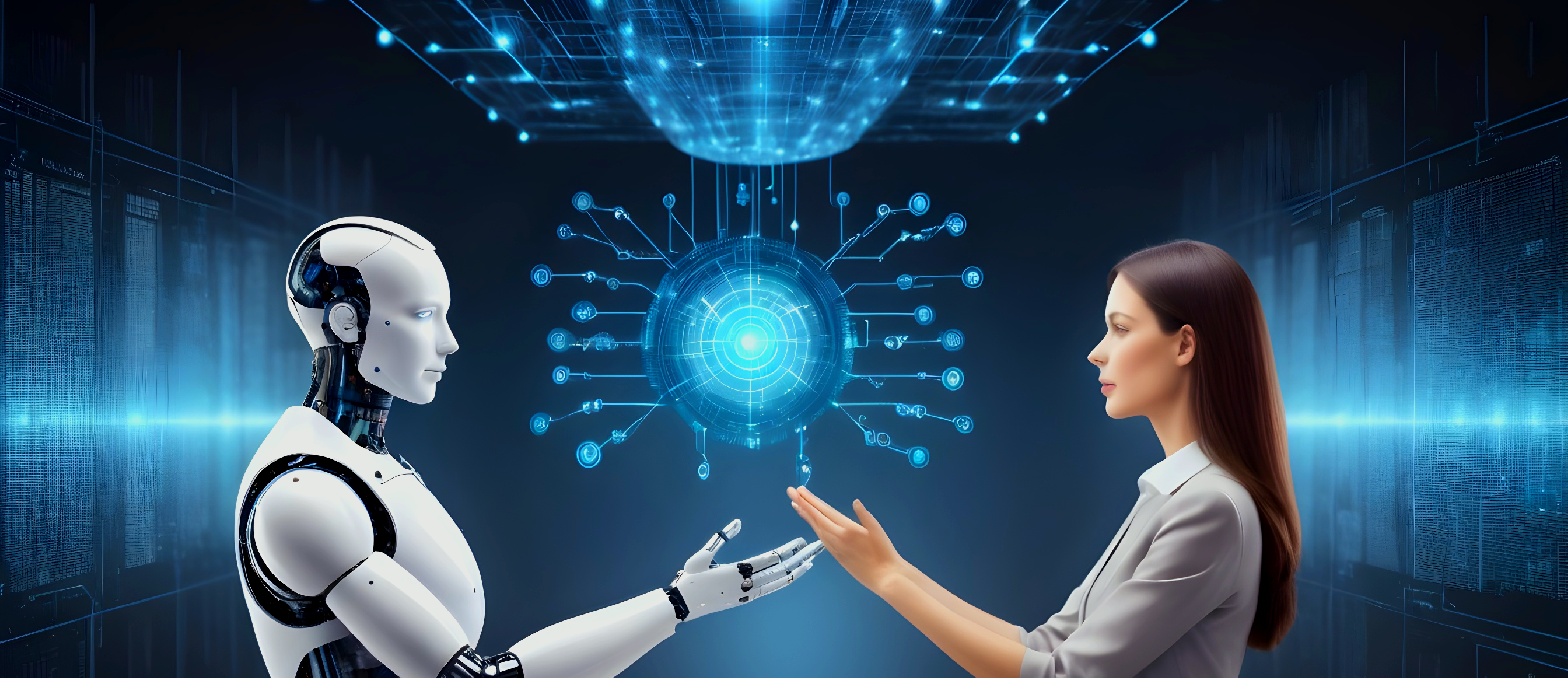Devops Consulting Services are becoming increasingly popular as organizations strive to improve their software delivery and deployment processes. DevOps is a software development methodology which emphasizes on communication between software development team and IT operations teams. This collaboration helps to ensure that software is developed and deployed quickly, reliably, and with minimal errors.
The role of productivity and efficiency is crucial in DevOps, as it directly impacts the speed and quality of software delivery. Devops Consulting Services in the USA are sought after by businesses seeking to optimize their DevOps practices and achieve better results. Continuous Integration and Continuous Deployment (CI/CD) Consulting Services are also in high demand, as they help organizations streamline their software development and deployment processes.
Artificial intelligence (AI) is increasingly used in DevOps to enhance productivity and efficiency. AI enables automation and intelligent decision-making, which can help to reduce manual work and minimize errors. As an Artificial intelligence development company, we have observed the impact of AI in DevOps firsthand. AI has shown great promise in optimizing DevOps practices, reducing manual tasks, and improving software delivery speed and quality.
In this blog post, we will explore the potential of AI in DevOps, its benefits, and its challenges. We will discuss how AI can improve productivity and efficiency in DevOps and explore real-world examples of AI in action. We will also provide best practices for implementing AI in DevOps and discuss the future of AI in this space. So, let’s dive in and explore the exciting potential of AI in DevOps.
Table of Contents
Understanding AI
Artificial Intelligence (AI) refers to the ability of machines to perform tasks that typically require human intelligence, such as recognizing speech, making decisions, and learning from experience. AI is a broad field that includes various technologies, such as machine learning, natural language processing, and computer vision.
Types of AI
There are two types of AI: narrow or weak AI and general or strong AI. Narrow AI refers to systems designed to perform specific tasks, such as an image or speech recognition. These systems are typically trained on a specific dataset and can only perform the designed task. While General AI, refers to systems that have human-level intelligence and can perform any intellectual task that a human can do.
AI applications in DevOps
Devops Consulting Services and CI/CD Consulting Services can benefit significantly from AI. Here are a few examples of how AI can be applied in DevOps:
- Predictive analytics: AI can analyze data and predict potential issues before they occur. It can help DevOps teams to proactively address issues rather than reactively fixing them.
- Automation: AI can automate repetitive tasks like testing and deployment, freeing up developers and operations teams to focus on more strategic work.
- Chatbots and virtual assistants: AI-powered chatbots and virtual assistants can be used to provide support to DevOps teams, answering questions and providing guidance on best practices.
- Monitoring and alerting: AI can monitor systems and detect anomalies, alerting DevOps teams to potential issues before they become critical.
As a Devops Consulting Services provider, it is essential to stay on top of emerging technologies and trends to provide the best possible service to clients. By partnering with a Ci/cd consultant or artificial intelligence development company, you can harness the power of AI to increase productivity and efficiency in your DevOps processes. By understanding AI and its potential applications in DevOps, you can make informed decisions about which technologies to invest in and how to integrate them into your workflows.
Benefits of AI in DevOps
There are several benefits of utilizing AI in DevOps, and in this section, we’ll explore some of the most important ones. As Devops Consulting Services, we have seen how AI has revolutionized how organizations develop, deploy, and manage software.
Increased productivity
One of the primary benefits of AI in DevOps is increased productivity. With AI, organizations can automate several mundane and repetitive tasks, which frees up developers to focus on more critical aspects of software development. It leads to faster delivery of software products, which is crucial in today’s fast-paced business environment.
Improved efficiency
AI can also help improve the efficiency of DevOps processes. By automating several tasks, AI reduces the chances of human error and speeds up the overall development process. Organizations can deploy software products faster, with fewer bugs and issues, resulting in more satisfied customers.
Better collaboration
AI can also improve collaboration between developers, operations teams, and other stakeholders involved in the software development process. By analyzing data from various sources, AI can provide insights into potential issues and help teams work together more effectively to resolve them. It leads to better communication, which is essential for successful DevOps.
Enhanced quality and reliability
Finally, AI can help improve the quality and reliability of software products. By analyzing data from various sources, AI can identify potential issues early in development, enabling teams to address them before they become significant problems. It results in more reliable and secure software products that perform better in real-world scenarios.
As a CI/CD Consulting Services provider, we have seen firsthand how AI has transformed the DevOps landscape. With the help of AI, organizations can streamline their development processes, reduce costs, and deliver better software products to their customers. At our Artificial intelligence development company, we have helped several organizations leverage AI to improve their DevOps processes and achieve their business objectives.
If you’re looking for Devops Consulting Services USA that can help you leverage AI to increase productivity and efficiency in your DevOps processes, contact us today. Our team of expert Ci/cd consultants can help you identify the right AI tools and technologies to achieve your business objectives.
Common Use Cases of AI in DevOps
Artificial Intelligence (AI) is transforming software development, and DevOps is no exception. AI is helping DevOps teams to automate repetitive tasks, increase efficiency, and improve overall productivity. Here are some simple use cases of AI in DevOps:
Continuous Integration and Continuous Deployment (CI/CD)
Continuous Integration and Continuous Deployment (CI/CD) is a DevOps practice that allows for the continuous delivery of software. AI can automate the testing and deployment of new code changes, allowing faster delivery times and fewer errors. Custom software development companies leverage AI to build more robust and efficient CI/CD pipelines, improving software quality and reducing downtime.
Monitoring and Alerting
Monitoring and Alerting are essential for DevOps teams to quickly detect and respond to issues. AI-powered monitoring tools can analyze large amounts of data from different sources, such as log files and metrics, and provide actionable insights. Custom software development services providers are building custom monitoring solutions that use AI to predict failures, detect anomalies, and provide real-time alerts, enabling faster incident response times.
Infrastructure Management
Managing infrastructure is critical to DevOps, and AI can help teams optimize and automate this process. Custom software development companies are building AI-powered tools to monitor and manage infrastructure, such as servers and networks, in real-time. AI can also help teams predict capacity needs and optimize resource utilization, reducing costs and improving performance.
Incident Management
Incident management is critical to DevOps, and AI can help teams respond to incidents quickly and effectively. AI-powered incident management tools can analyze data from different sources, such as logs and metrics, to identify the root cause of the issue and provide recommended actions. Custom software development services providers are building custom incident management solutions that use AI to reduce mean time to resolution (MTTR), minimize downtime, and improve overall service quality.
AI is transforming the DevOps team’s work, enabling them to automate tasks, improve efficiency, and increase productivity. Custom software development companies leverage AI to build more robust and efficient DevOps pipelines, improving software quality and reducing downtime. As AI technology evolves, we can expect even more significant advancements in DevOps practices.
Challenges in Implementing AI in DevOps
Artificial intelligence development services can potentially revolutionize DevOps by increasing productivity and efficiency. However, several challenges must be addressed to fully realise AI’s benefits in DevOps.
Data quality and availability
One of the biggest challenges in implementing AI in DevOps is ensuring that the data used to train AI models is highly qualified and readily available. Poor quality data can lead to inaccurate predictions and unreliable results. Data silos and governance issues can also make accessing the data needed for AI development difficult.
Integration with existing tools and processes
Another challenge is integrating AI with existing tools and processes. DevOps teams often use various tools and platforms, and integrating AI into these systems can be complex. Custom software development services can help organizations overcome this challenge by developing custom AI solutions seamlessly integrating with existing tools and processes.
Skills and expertise
Implementing AI in DevOps requires specialized skills and expertise. Developers with expertise in machine learning and natural language processing are in high demand, and organizations may struggle to find the talent they need to build and maintain AI systems. Custom software development companies can help organizations overcome this challenge by providing access to expert developers and engineers.
Security and privacy concerns
Finally, security and privacy concerns are associated with implementing AI in DevOps. AI systems must be designed with security in mind, and organizations must take steps to protect sensitive data from unauthorized access. Custom software development companies can help organizations ensure their AI systems are secure by implementing industry-standard security protocols and using secure development practices.
Best Practices for Implementing AI in DevOps
Implementing AI in DevOps can be a game-changer for organizations looking to increase their productivity and efficiency. However, following best practices is essential to ensure a successful implementation. Here are some key tips:
Start small and scale up
Regarding AI in DevOps, starting with small and manageable projects is essential. It will help you test and learn the capabilities of AI while minimizing the risk of failure. Once you’ve succeeded with a small project, you can scale up to larger and more complex projects.
Define clear objectives and KPIs
Before implementing AI in DevOps, defining clear objectives and key performance indicators (KPIs) is crucial. It will help you measure the project’s success and ensure you achieve your desired outcomes. You can work with artificial intelligence development services to help you identify the right KPIs and objectives for your project.
Involve stakeholders from the beginning.
It’s essential to involve all relevant stakeholders from the beginning of the AI implementation process. It includes everyone from developers and IT teams to business leaders and end-users. It will help ensure that everyone is aligned on the project’s goals and benefits and that the project meets the needs of all stakeholders.
Choose the right tools and technologies.
Choosing the right tools and technologies is critical when implementing AI in DevOps. It includes selecting the right AI frameworks, platforms, and libraries. Working with a custom software development company with AI expertise can help you identify and select your project’s best tools and technologies.
In summary, implementing AI in DevOps can be a powerful tool to increase productivity and efficiency. To ensure success, it’s essential to start small and scale up, define clear objectives and KPIs, involve stakeholders from the beginning, and choose the right tools and technologies. By following these best practices, organizations can achieve success with AI in DevOps and drive significant value for their business.
AI Tools and Technologies for DevOps
AI tools and technologies have become essential to DevOps, helping organizations improve productivity and efficiency in their software development processes. The increasing adoption of AI in DevOps has impacted custom software development services, IT Consulting Services, and Digital Transformation. This section will explore some of DevOps’s most popular AI tools and technologies.
Machine Learning (ML)
Machine learning enables computers to learn from data and improve their performance over time without being explicitly programmed. In DevOps, ML is a type of AI which is used for various purposes, such as predicting the likelihood of a software bug, identifying patterns in application performance, and optimizing infrastructure resources. Custom software development and IT Consulting Services can help organizations leverage ML in their DevOps processes.
Natural Language Processing (NLP)
NLP is an AI that enables computers to understand and interpret human language. In DevOps, NLP analyses logs and alerts, extracts insights from customer feedback and automates incident management workflows. Digital Transformation initiatives can benefit from NLP-powered tools that can help streamline communication and collaboration across teams.
Chatbots and Virtual Assistants
Chatbots and virtual assistants are AI-powered tools that can interact with users in natural language. In DevOps, these tools are used for tasks such as answering common support queries, providing real-time status updates, and automating routine tasks. Custom software development services can help organizations build chatbots and virtual assistants tailored to their needs.
Predictive Analytics
Predictive analytics is a type of AI that uses data, statistical algorithms, and machine learning techniques to identify the likelihood of future outcomes. In DevOps, predictive analytics is used to predict infrastructure failures, identify the root cause of application performance issues, and optimize resource utilization. IT Consulting Services can help organizations leverage predictive analytics in their DevOps processes to improve reliability and efficiency.
Real-World Examples of AI in DevOps
AI is being increasingly adopted in DevOps by organizations across industries, including custom software development services, IT Consulting Services, and those undergoing Digital Transformation. Here are some examples of how top companies are using AI in DevOps:
Netflix
Netflix has been a pioneer in using AI in its DevOps processes. The company uses machine learning algorithms to optimize video streaming and improve user experience. Netflix has also developed a tool called “Chaos Monkey,” which randomly shuts down servers to test the resiliency of its system.
Capital One
Capital One has leveraged AI to improve its security and fraud detection capabilities. The company uses machine learning algorithms to analyze transaction data and detect anomalies. It has helped Capital One to prevent fraudulent transactions and improve its security posture.
Walmart
Walmart has used AI in its DevOps processes to optimize its supply chain and inventory management. The company uses machine learning algorithms to analyze customer data and predict demand. It has helped Walmart to reduce its inventory costs and improve its supply chain efficiency.
Microsoft
Microsoft has been investing heavily in AI to improve its DevOps processes. The company has developed an AI-powered tool called “Intelligent Insights, ” which helps IT teams proactively detect and resolve issues. Microsoft has also integrated AI into its DevOps pipeline to automate testing and deployment.
These real-world examples demonstrate the diverse range of applications for AI in DevOps. Whether optimizing video streaming, improving security, streamlining supply chain operations, or automating testing and deployment, AI can revolutionize how organizations approach DevOps.
As more organizations adopt AI in their DevOps processes, it’s essential for custom software development services, IT Consulting Services, and other technology providers to keep pace with the latest developments in artificial intelligence development services.
Future of AI in DevOps
Advancements in AI technology
AI technology is constantly evolving and improving, and this will have a significant impact on DevOps. In the future, we can expect AI to become more advanced and sophisticated, with the ability to automate even more tasks in the DevOps process. It could include everything from automating testing and deployment to predicting and preventing problems before they occur.
To stay ahead of the curve in this rapidly changing landscape, many organizations are turning to Devops Consulting Services to help them leverage the latest AI technologies in their DevOps process. These services can help organizations identify the best tools and technologies to meet their specific needs and provide training and support to ensure their teams are up to speed on the latest best practices and techniques.
Integration with other emerging technologies
AI will also play a critical role in integrating other emerging technologies in DevOps. For example, AI can be used with blockchain technology to create a more secure and transparent DevOps process. Similarly, AI can enhance the capabilities of DevOps tools such as Docker and Kubernetes.
In the United States, several Devops Consulting Services specialize in helping organizations integrate AI into their DevOps process. These services can help organizations navigate the complex landscape of AI technologies and identify the solutions that will provide the greatest value and ROI.
Impact on the future of work
The use of AI in DevOps will undoubtedly significantly impact the future of work. As AI technology becomes more advanced, it can take on more complex tasks, allowing DevOps teams to focus on higher-level strategic planning and decision-making. It will also create new opportunities for DevOps professionals as the demand for those with expertise in AI and other emerging technologies continues to grow.
CI/CD Consulting Services can help organizations streamline their DevOps process and automate more tasks using AI. By working with a Ci/cd consultant, organizations can identify areas where AI can be most effective and develop a plan to integrate AI technologies into their DevOps process.
Conclusion
In conclusion, AI has the potential to revolutionize DevOps by increasing productivity and efficiency. Organizations can automate manual processes, optimize workflows, and improve team collaboration by leveraging AI tools and technologies. However, implementing AI in DevOps also presents challenges like data quality and integration with existing tools and processes. To successfully implement AI in DevOps, organizations should start small, involve stakeholders from the beginning, and choose the right tools and technologies.
Devops Consulting Services, such as CI/CD, can provide invaluable expertise and support in implementing AI in DevOps. Companies in the USA looking to integrate AI into their DevOps processes can benefit from partnering with an artificial intelligence development company to access the latest AI technologies and best practices. Overall, the potential benefits of AI in DevOps are significant, and organizations that embrace this technology will be well-positioned to thrive in the future.
Frequently Asked Questions (FAQs)
How can AI be used in DevOps?
In DevOps, AI can be used in several ways to increase productivity, efficiency, and collaboration. Some of the key areas where AI can be applied in DevOps include:
- Continuous Integration and Continuous Deployment (CI/CD): AI can automate various stages of the CI/CD pipeline, such as code testing, deployment, and monitoring, to improve the speed and accuracy of software delivery.
- Monitoring and Alerting: AI can analyze system logs and performance metrics to detect anomalies and predict potential issues before they occur, allowing for proactive troubleshooting and optimization.
- Infrastructure Management: AI can optimize resource allocation, capacity planning, and configuration management by analyzing data and recommending the most efficient and cost-effective solutions.
- Incident Management: AI can help automate incident management processes by analyzing data and recommending the most appropriate actions to resolve issues quickly and efficiently.
How does AI increase productivity?
AI can increase productivity in several ways in DevOps, including:
- Automating repetitive and time-consuming tasks: AI can automate various manual tasks, such as testing, deployment, and monitoring, freeing up developers and operations teams to focus on more strategic activities.
- Improving accuracy and quality: AI can analyze data and identify patterns and anomalies that may be missed by human operators, resulting in more accurate and reliable software delivery.
- Enhancing collaboration: AI can facilitate collaboration across teams by providing insights and recommendations based on data analysis, enabling faster and more informed decision-making.
- Enabling proactive optimization: AI can analyze data and provide recommendations for optimizing systems and processes, allowing organizations to stay ahead of potential issues and improve performance over time.
How does AI help in improving efficiency?
AI can help improve efficiency in several ways in DevOps, including:
- Reducing downtime: AI can analyze data and predict potential issues before they occur, allowing organizations to take proactive measures to prevent downtime and minimize the impact of incidents when they do occur.
- Optimizing resource allocation: AI can analyze data and recommend the most efficient use of resources, such as computing power and storage capacity, to reduce waste and improve performance.
- Streamlining processes: AI can automate various stages of the software development and delivery pipeline, such as testing and deployment, to reduce manual effort and minimize errors.
- Enabling continuous improvement: AI can analyze data and provide insights and recommendations for optimizing systems and processes, enabling organizations to continually improve and adapt to changing business needs.
What is the use of AI and ML in DevOps?
AI and machine learning (ML) can be used in DevOps in several ways, including:
- Predictive analytics: AI and ML can analyze data to predict potential issues before they occur, enabling proactive troubleshooting and optimization.
- Anomaly detection: AI and ML can detect anomalies in system logs and performance metrics that may be missed by human operators, allowing for faster and more accurate issue resolution.
- Resource optimization: AI and ML can analyze data to recommend the most efficient use of resources, such as computing power and storage capacity, to reduce waste and improve performance.
- Automation: AI and ML can automate various stages of the software development and delivery pipeline, such as testing and deployment, to reduce manual effort and minimize errors.
- Natural language processing (NLP): NLP can enable chatbots and virtual assistants to help developers and operations teams get answers to common questions and resolve issues more quickly.
How is AI used in automation?
AI can be used in automation in several ways, including:
- Automating manual tasks: AI can automate various tasks, such as testing and deployment, to reduce manual effort and minimize errors.
- Workflow optimization: AI can analyze data and recommend the most efficient workflows, such as prioritizing specific tasks or optimizing resource allocation, to improve efficiency and reduce waste.
- Predictive analytics: AI can analyze data to predict potential issues before they occur, allowing organizations to take proactive measures to prevent downtime and minimize the impact of incidents when they do occur.
- Machine learning: ML algorithms can learn from past data and improve over time, enabling organizations to optimize their automation processes and improve performance continually.
- Natural language processing (NLP): NLP can enable chatbots and virtual assistants to help automate everyday tasks, such as answering frequently asked questions or resolving simple issues, freeing up developers and operations teams to focus on more complex ones tasks.
Read more about Natutal Language Processing in Mobile App develoment






